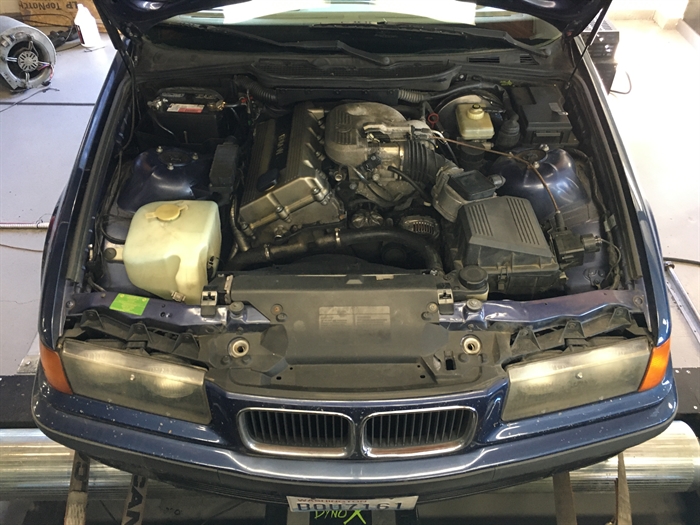Vital Considerations for Picking the Ideal Engine for Your Needs
In the world of picking the optimal engine to fulfill your requirements, a number of vital factors demand careful factor to consider to ensure optimal performance and effectiveness. From the nuanced equilibrium in between power and efficiency to the often-overlooked elements of upkeep and solution demands, each aspect plays a crucial duty in determining the most suitable engine for your particular needs.
Power and Performance
When examining engines for ideal efficiency, it is vital to focus on both power outcome and effectiveness. Power result gauges the capacity of an engine to generate energy, which directly impacts its performance. A high power output is important for demanding tasks such as high-speed needs or durable applications. It makes sure that the engine can deal with the workload effectively and successfully. Power alone is not adequate; efficiency plays a substantial function in identifying the overall efficiency of an engine. Effectiveness refers to just how well the engine transforms fuel right into functional energy. A more reliable engine will supply far better mileage, reduced exhausts, and decreased operating expense. Striking the appropriate balance in between power outcome and efficiency is vital to choosing an engine that meets your details needs. When making this decision, it is essential to think about factors such as the meant usage of the engine, environmental effect, and lasting expense effects. By carefully examining both power and efficiency, you can select an engine that supplies optimal efficiency and fulfills your requirements properly.
Gas Performance and Economy
Gas effectiveness refers to the engine's capability to convert fuel right into power with very little waste, directly impacting operating costs and ecological sustainability. Engines with greater fuel efficiency not just minimize fuel expenses yet additionally reduce carbon emissions, adding to a greener procedure.

Compatibility and Application
Considering the fuel efficiency and economic situation of an engine, the next critical element to address is its compatibility and application within specific operational contexts. Compatibility describes how well the engine incorporates with the overall system or devices it powers. It entails elements such as physical measurements, mounting choices, electric interfaces, and control systems. Making certain compatibility is necessary to prevent problems such as getting too hot, vibrations, or power discrepancies (bmw 318ti).
Various engines are made for specific objectives, whether it be commercial equipment, aquatic vessels, cars, or power generators. Comprehending the designated application enables for the choice of an engine that can deliver the necessary power output, torque, and operational characteristics.
Maintenance and Service Demands
Upkeep and service needs play an more helpful hints essential duty in ensuring the longevity and ideal efficiency of an engine. Normal upkeep is vital to protect against breakdowns, extend the life expectancy of the engine, and preserve its performance. When picking an engine, it is essential to think about the maker's advised upkeep timetable and the availability of service centers or qualified specialists.
Aspects such as the regularity of oil modifications, filter substitutes, and general assessments can dramatically impact the engine's performance. Some engines may require more regular servicing based on their design and usage, while others may have longer intervals between upkeep checks. It is essential to stick to these solution needs to prevent expensive repair services and unforeseen downtime.

Price and Budget Plan Factors To Consider
Spending plan restrictions usually play a considerable role in the decision-making procedure when choosing an engine for a certain application. When considering the expense and budget implications of selecting an engine, it is important to evaluate not just the first acquisition price yet likewise the long-term costs linked with maintenance, gas intake, and potential upgrades or repair services. It is vital to strike a balance between the upfront expense of the engine and its total lifecycle expenses to ensure that the picked engine stays financially sustainable throughout its functional lifespan.
Factors such as gas toughness, performance, and reliability can directly affect the total price of possession of an engine. While a much more expensive engine may have higher in advance costs, it can potentially result in our website reduced upkeep and gas expenditures More hints over time, hence using much better worth in the long run.
Conclusion

Fuel effectiveness refers to the engine's capacity to transform fuel into power with very little waste, straight impacting operating expenses and ecological sustainability.Variables influencing fuel effectiveness consist of engine layout, burning efficiency, and general performance optimization. Furthermore, picking the appropriate fuel type and grade as suggested by the engine supplier can further enhance efficiency and extend engine life expectancy.
Engines with excellent utility attributes and readily available parts can reduce maintenance costs and reduce the time the engine is out of operation - bmw 318ti. It is critical to strike an equilibrium in between the ahead of time price of the engine and its total lifecycle prices to make certain that the chosen engine remains financially lasting throughout its functional life-span